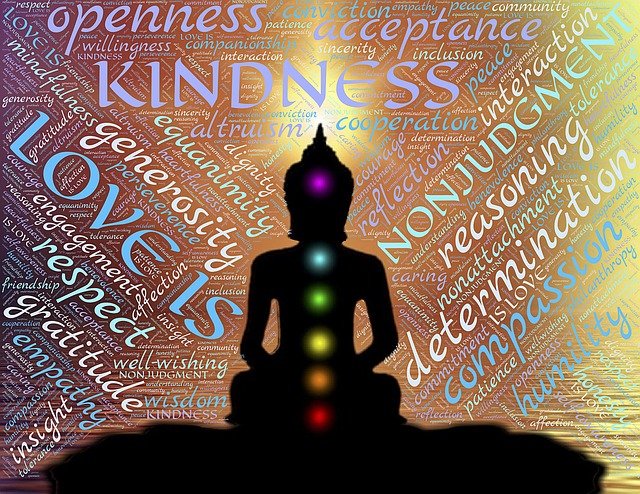“All of us failed to match our dream of perfection. I rate us on the basis of our splendid failure to do the impossible.” –William Faulkner
I swear like a sailor. A sailor with a wide cursing vocabulary, wider than all seven oceans on Earth, maybe even wider than the weird gaseous oceans on Jupiter. I mean, I really do work on it. What’s more, I like to swear, particularly when I’m stuck in traffic and feeling frustrated. There’s something almost magical about saying a particularly harsh sounding word, with a hiss in your throat, when someone is weaving dangerously in and out of traffic. It’s a vice, one that I pay attention to, trying to make sure it doesn’t get out of control. But like any good vice, I try to savor it when I indulge.
Have you ever tried yelling, alone in your car, while in traffic? If not, I recommend it. Try it just once and see how it feels. Feel the way your throat is pleasantly sore after saying it in your meanest, angriest tone. Feel how your body, so tense with unrelieved stress, begins to melt back into your seat. And then listen, to that little voice in the back of your mind, see what they have to say.
I wouldn’t be shocked, not even a little bit, if that voice reprimands you. Perhaps it will do so kindly, pointing out all the reasons that swearing is wrong, perhaps it will be more stern, suggesting that you are an awful person for having done so, perhaps it will say nothing at all, but rather fill you with a sense of impending doom, knowing somehow, without words, that what you have just done is a failure that cannot be described, and that you deserve punishment.
If I can’t convince you to try swearing, or if swearing doesn’t bring anything but joy (and kudos to you there!), there’s likely something else you have done or do, that will bring up that voice of condemnation. It can be hard to recognize at first, because perfectionism isn’t really like a thief in the night kind of problem. It’s more of a con artist, who talks his way into your home, promising you the thing you most long for—acceptance, security, peace, joy, intimacy…the list could go on—all for the low, low price of your soul.
I bring all this up, because I’ve been thinking a lot about perfectionism lately, and not because I’m somehow above or beyond it, but rather I often see it haunting the lives of so many people with whom I sit and listen and wrestle with as they struggle to grow beyond who they are now, and as they blossom into who they have longed to be. Perfectionism trips them up again and again, casting the long shadow of failure, and whispering to them in ways cruel and kind, “you are not yet enough, you must do and be more, or you will never be enough.”
Failure is an anathema and to be avoided at all costs. Even minor failures can bring up devastation and tremendous fear, because failure is no longer about failure, rather it is the slow annihilation of self. This isn’t just anecdotal; research has shown that perfectionism hampers success. The gifts it brings are not acceptance, security, peace, or joy, but rather anxiety, depression, and addiction. (Brene Brown writes about this in such an eloquent and engaging way in her The Gifts of Imperfection).
Perfectionism has a few tells, that if you pay attention closely, you start to notice with blinding clarity. The ‘I should’s definitely hit the top of the list. The chorus of shoulds tumble after each other like dominos, it’s rare to have just one should that isn’t followed by a half dozen others (though they may be silent). For example, someone told me recently that they really should try harder at work. When I asked what that meant, they explained that they should be working harder, being more cooperative with their colleagues, and to not be so lazy. When we examined these ideas in more depth, it came out that they were working extremely hard (ten to twelve hour days regularly, picking up the slack of colleagues), they were struggling to cooperate with their colleagues since that often meant their colleagues ‘delegated’ their work to this person, and that in fact, wanting to veg out at home on the weekend and binge watching Netflix wasn’t actually lazy, but rather a way that they could begin to take a mindless break, something they rarely experienced during the week.
The telltale signs don’t end there though, on the shoulds heels, typically include: the concerns over making mistakes (“I’m not sure I’m doing this therapy thing right”); explaining to me that they have very ‘high’ (read: inhuman and nearly impossible) standards; the expectation that I will judge them harshly (even when they know intellectually that I won’t, they have so much experience with criticism, it doesn’t seem possible to have a relationship without it); doubting whether what they did was not only good, but good enough; and sharing in with fear shading their voice, that they’re pretty sure they have low, or maybe even no, self-esteem, no matter what they project to the world.
As Anne Lamott put it (in her stupendous, Bird by Bird: Instructions on Writing and Life), “perfectionism is the voice of the oppressor.” When we allow the shoulds and the not good enoughs to rule our lives, we become imprisoned, trapped by our perception of others’ expectations and our belief that we are not enough. There’s not much to do until we realize how perfectionism is not embracing us, but is rather incarnating us. It is when we begin to accept the very thing we’ve feared most of all, failure, that we begin to chip away at our chains. When we embrace vulnerability, understanding that we are devastatingly, amazingly human, we begin to experience transformation. We learn what it means to be human.
I love to swear, to cuss, to use language that isn’t “appropriate”, because it reminds me that I am, myself, profane. Each of us exist only for a moment in this story of humanity. Our finiteness carries within it a mystery of the divine, that when we stop to move beyond the trickster of perfectionism, we discover a mystery in the murky depths of humanity: we are enough.
To request an appointment with Jenn- click here.
Request an Appointment
Individiual, Couples, Pre-Marital, Family,
Children's Counseling and Clergy Assessement
Was It Helpful To You?



 (4 votes, average: 4.75 out of 5)
(4 votes, average: 4.75 out of 5)



